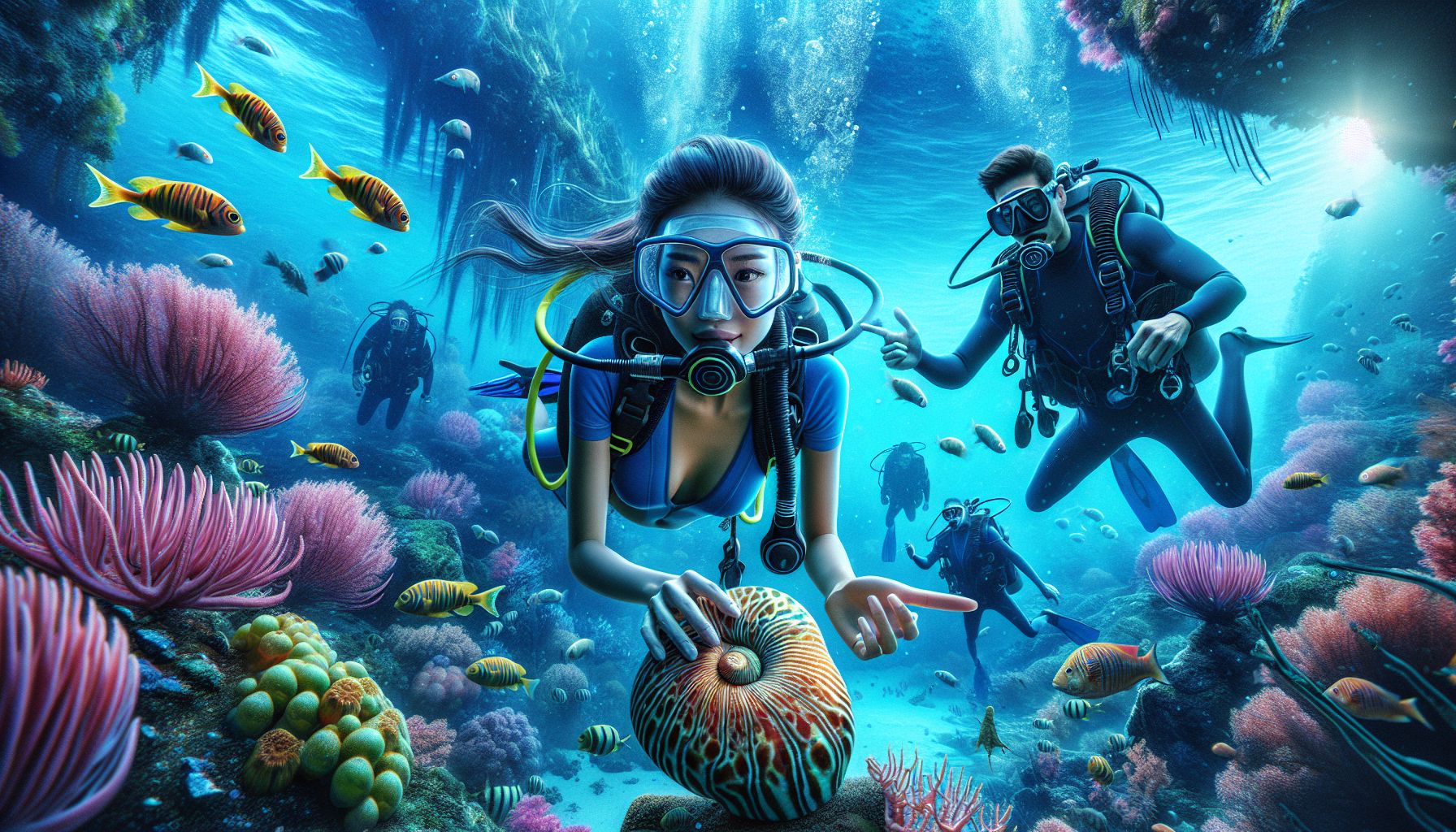Scuba diving is a gateway to a magnificent underwater realm where the bounds of our terrestrial existence are surpassed by the weightless adventure among marine life. It’s an activity that offers tranquility, beauty, extraordinary wildlife encounters, and the thrill of exploring the unknown. Regardless of your reason for diving in, whether for scientific study, photography, exploration, or simple pleasure, the world of scuba diving offers endless opportunities for personal enrichment and adventure.
What is Scuba Diving?
Scuba diving is a form of underwater diving wherein the diver uses a self-contained underwater breathing apparatus (scuba) that is completely independent of surface supply. This allows for greater freedom and mobility than other modes of diving.
The History of Scuba Diving
The history of scuba diving is rich and diverse, stretching back to the early 20th century when the first modern rebreathers were developed. However, it wasn’t until Jacques Cousteau and Emile Gagnan invented the Aqua-Lung in the 1940s that recreational scuba diving truly became possible. This breakthrough opened the underwater world to scientists, explorers, and eventually, the general public, turning scuba diving into the popular activity it is today.
Scuba Diving Equipment
To descend safely into the depths, a diver needs a range of equipment.
- Scuba Tank: The backbone of your gear, this holds the air you breathe underwater.
- Regulator: This apparatus controls the flow of air from your tank and includes hoses for inhaling and exhaling.
- Buoyancy Control Device (BCD): A jacket or wing-like device that helps you maintain neutral buoyancy.
- Dive Computer: Keeps track of your depth, dive time, and no-decompression limit to help prevent decompression sickness.
- Wetsuit/Drysuit: Provides insulation and protection from the environment.
- Fins: For efficient movement through the water.
- Mask: To see clearly underwater.
- Weights: To counteract buoyancy.
- Accessories: Such as a dive light, compass, and safety buoy.
Getting Certified
Before you can start diving, you must get certified. This typically involves:
- Classroom Learning: Where you understand the theory of diving.
- Confined Water Dives: To learn basic scuba skills in a safe, controlled environment.
- Open Water Dives: To apply what you’ve learned in the open sea under an instructor’s watch.
The Diving Experience
Once you’re certified, you can start exploring the underwater world. Diving spots vary vastly, from coral reefs teeming with colorful fish to mysterious shipwrecks and hauntingly beautiful kelp forests. Each dive adds to your experience, enabling you not only to improve your skills but also to observe the tremendous diversity of aquatic life.
Wildlife Encounters
Diving can provide personal encounters with marine life that simply cannot be experienced in any other way. Imagine swimming alongside a graceful manta ray, watching a coral reef bustling with life, or even encountering the elusive octopus in its natural habitat.
Conservation
Scuba divers often become passionate advocates for ocean conservation. Seeing the beauty of underwater ecosystems firsthand can be a profound experience, but it also highlights the fragility of these environments and the impacts of threats like pollution, overfishing, and climate change.
Dive Safety
A safe diving experience requires understanding and mitigating the risks.
- Never dive alone – Always have a buddy.
- Check your gear thoroughly before diving in.
- Plan your dive, and dive your plan. Adhere to depths and times you have laid out.
- Stay within your limits. Don’t take unnecessary risks.
- Be aware of your air. Regularly check how much you have left.
- Ascend slowly and safely to avoid decompression sickness.
Health Benefits of Scuba Diving
Scuba diving isn’t just a thrilling experience; it also comes with several health benefits:
- Improves Physical Fitness: Swimming against the resistance of water helps to build muscle and promote general physical health.
- Enhances Emotional Well-being: The tranquil environment can reduce stress and improve mental health.
- Boosts Concentration Capacity: Diving requires focusing on breathing and the environment, which can enhance concentration.
- Encourages a Connection with Nature: It deepens the appreciation of the natural world and our place within it.
Advanced Scuba Diving
For those who find themselves enthralled by scuba diving, there are many advanced paths to explore:
- Technical Diving: Pushing beyond the limits of recreational diving, using specialized equipment to explore deeper and longer.
- Cave Diving: Exploring underwater caves requires special training and gear due to the overhead environment.
- Wreck Diving: Investigating sunken ships, planes, and other structures.
- Underwater Photography and Videography: Capturing the beauty of the underwater world can be an art within itself.
Training and Education
Continuous education is a core part of scuba diving. With organizations such as PADI, NAUI, and SSI offering courses on everything from night diving to search and recovery, divers can always find new challenges to keep their experiences fresh and exciting.
Sources and Further Reading:
If you’re eager to learn more about scuba diving, check out these sources:
- PADI (Professional Association of Diving Instructors): https://www.padi.com
- DAN (Divers Alert Network): https://www.diversalertnetwork.org
- The Underwater Guide: https://www.underwaterguide.com
Whether you’re drawn to the thrill and adventure or the peace and beauty that lies beneath the waves, scuba diving offers something for everyone. It’s not just a sport; it’s a door to a world that most will never see. So strap on your fins and adjust your mask, because an otherworldly adventure awaits in the depths of our planet’s oceans.
